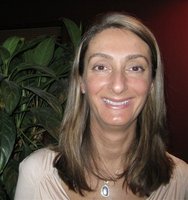How to Become a Human Services Professional

Mirelle Cohen has been a professor of human services for the past five years. She earned a Bachelor of Science in sociology from University of Surrey, England, a Master of Science in sociology from Oxford University, and a PhD in sociology from the University of British Columbia. Mirelle is a member of the Washington State Chemical Dependency Educators (WACASE), and she is also a Court Appointed Special Advocate (CASA) for children who have been removed from the home by Child Protective Services.
What is human services?
As an academic field, it is the study of the caring professions -- the history of the field and skills needed to be successful in it. Human services and social work are synonymous in most key ways.
What do you find most interesting about human services?
Caring for and about others is my moral guiding principal and my key academic interest.
What is your least favorite aspect of human services?
The challenge of maintaining boundaries (closing off my heart and using my head).
Are there subfields of human services that students might not be aware of?
Hospital social work, hospice (caring for those at the end of their lives who have accepted that their life will soon end), adoption.
What careers do students commonly pursue with a degree in human services?
Chemical dependency professional, social worker, director of a group home, marriage guidance counselor, academic counselor.
Is a graduate degree preferable for a career in human services, or can someone enter the field with a bachelor's degree?
For chemical dependency professional certification, an associate degree is sufficient for entry-level clinical positions. For probation work, a bachelor’s degree will do, but for the majority of positions working with vulnerable populations, a master's degree in social work is required.
What personality traits do you think a student should have in order to be successful in a human services program?
You should be empathetic, open-minded, nonjudgmental, diplomatic, articulate, resilient, lighthearted, and fair.
What electives would you recommend that a student in a human services program take?
I would recommend classes such as intro to sociology, intro to psychology, abnormal psychology, lifespan psychology, cultural anthropology, public speaking, intro to addictive drugs, and as many human services classes as possible. Statistics is highly recommended and also a foreign language like Spanish. ASL is very good too.
What study tips would you give to a student to help him or her succeed in a human services program?
Write, write, write. Master APA style and practice speaking in public. Speaking and writing are very important. Read a quality newspaper with an international section daily.
Do you think human services is a subject that can be studied online, or is a traditional class environment ideal?
Academic classes are fine online but skills classes (interviewing/counseling techniques) must be taken face-to-face.
What subjects should a prospective student of human services study before entering a formal college program?
Try to get college-level math and English in place to save many quarters spent brushing up on basic skills.
What pieces of advice, or caution, would you offer to a prospective student of human services?
The field is not well-paid, so if building wealth is a priority, this is not the right field. Also, if you are hoping to change the world or to see measurable change in every client, you will be disappointed. The idea is to help folks become independent, and this kind of change comes incrementally and often with many setbacks along the way.